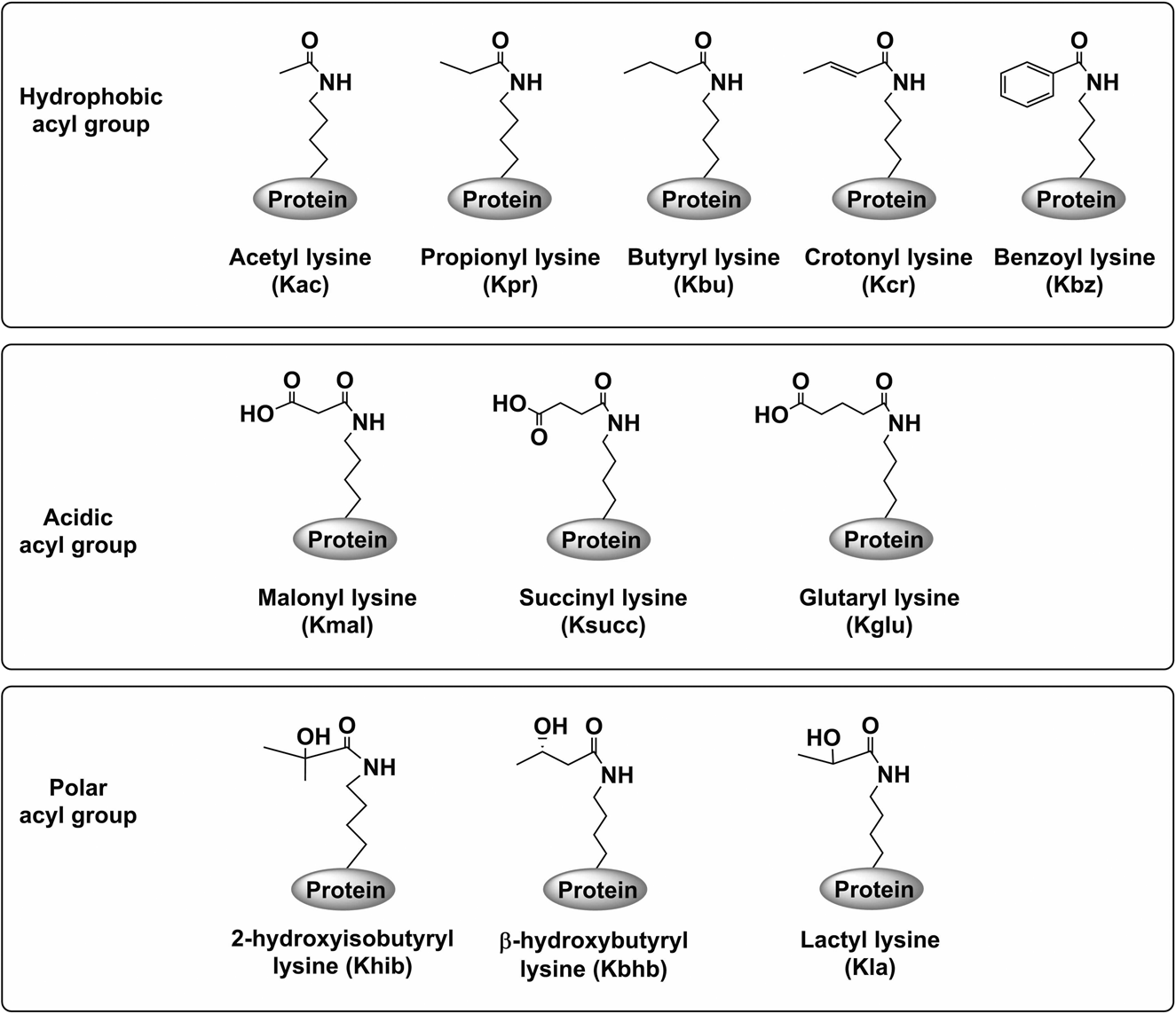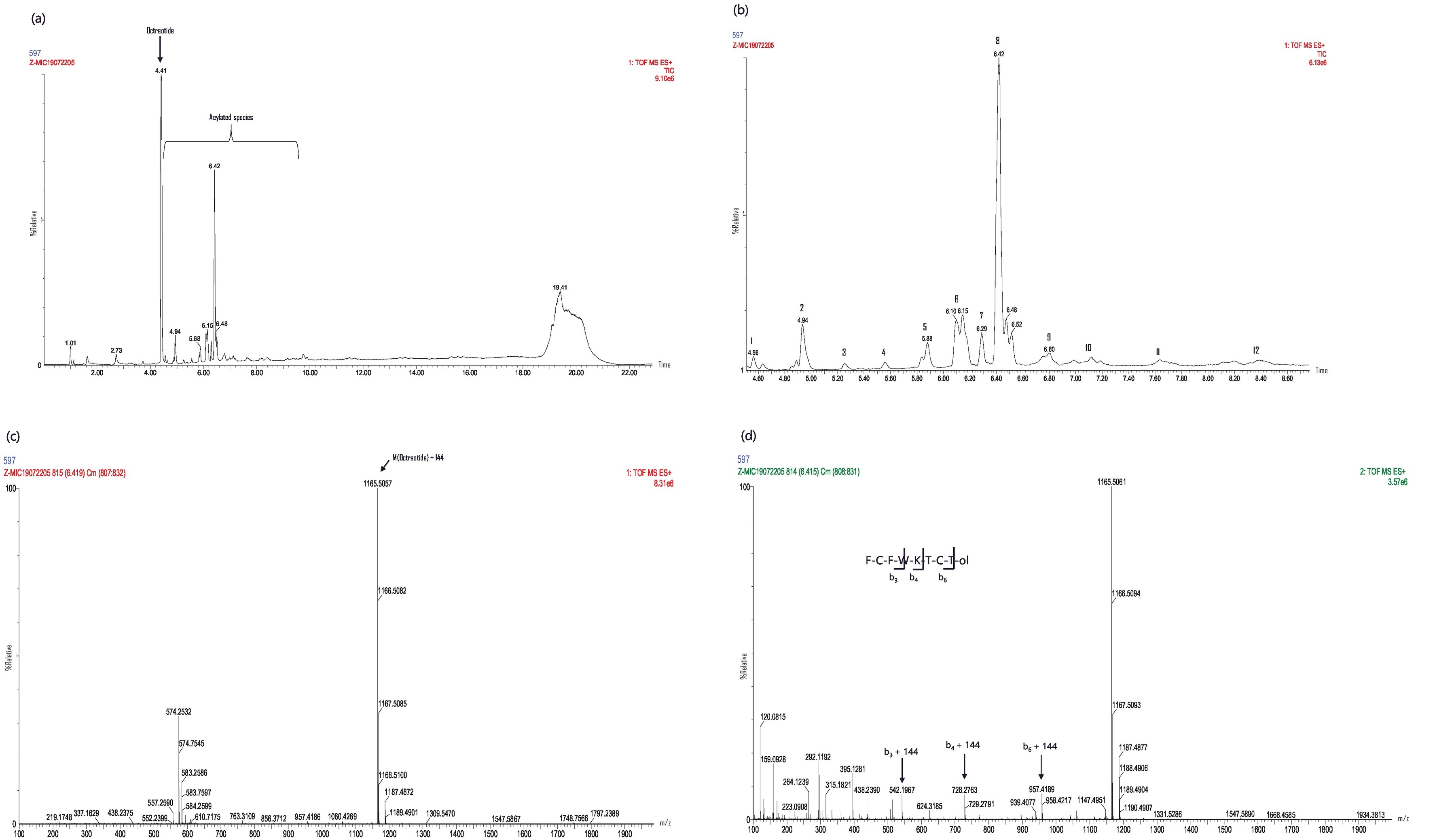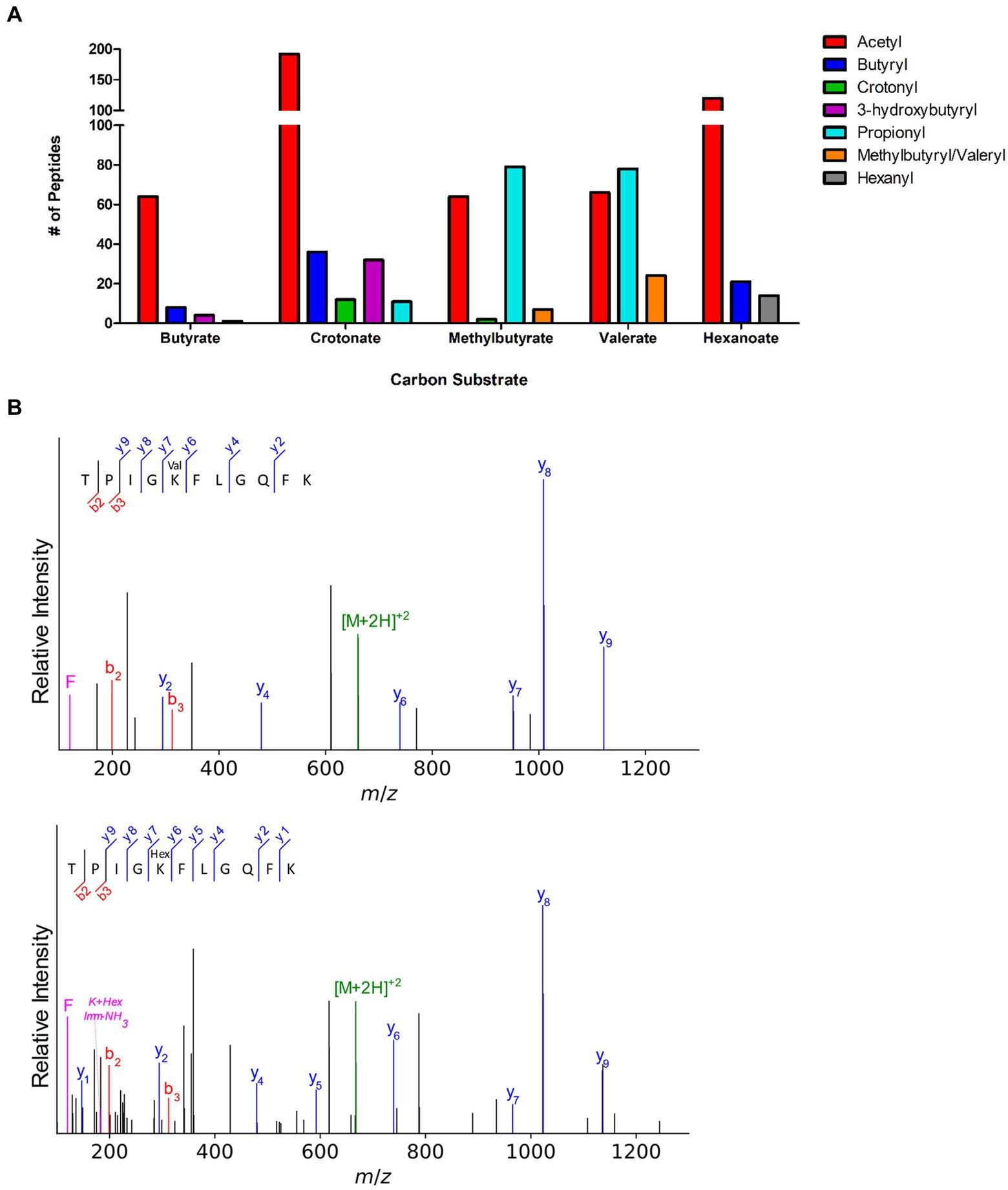Acylation Proteomics Analysis Service
- Epigenetics Research: Characterizing histone acylation patterns to elucidate gene expression regulatory mechanisms.
- Metabolic Regulation Studies: Investigating acylation’s role in metabolic disorders such as diabetes and obesity.
- Cancer Biology: Profiling acylation patterns in tumor cells to inform the development of novel therapeutic strategies.
- Neuroscience Research: Analyzing acylation modifications in neural cells to understand their function in synaptic transmission and neurodegeneration.
- Drug Mechanism Studies: Assessing the effects of drug candidates on protein acylation to support targeted therapy development.
Acylation proteomics analysis is a high-throughput analytical approach designed to comprehensively identify and quantify protein acylation sites, providing insights into their functional roles in cellular biology and disease research. Protein acylation, a crucial class of post-translational modifications (PTMs), regulates protein stability, interactions, and functions, thereby influencing key biological processes such as signal transduction, metabolic regulation, and gene expression. Based on their chemical properties, protein acylation modifications can be classified into hydrophobic (e.g., acetylation, butyrylation, crotonylation), acidic (e.g., malonylation, succinylation), and polar (e.g., hydroxybutyrylation, lactylation) categories, all of which play critical roles in cellular regulation and disease pathogenesis.

Jiang, G. Y. et al. Cell Death Dis. 2021.
Figure 1. Chemical Structures of Lysine Acylations
With growing research interest in PTMs, acylation proteomics has emerged as a valuable tool in fields such as cancer, metabolic diseases, neurodegenerative disorders, and immunology. Leveraging an advanced LC-MS platform and extensive expertise in proteomics, MtoZ Biolabs offers a high-sensitivity, high-resolution Acylation Proteomics Analysis Service to support researchers in unraveling the biological significance of acylation modifications, providing crucial data for both fundamental research and precision medicine.
Technical Principles
Acylation Proteomics Analysis Service utilizes high-resolution mass spectrometry to precisely measure mass-to-charge ratios (m/z) for the identification and quantification of acylation modifications. These modifications induce molecular weight shifts in peptides, such as an increase of 42.01 Da for acetylation and 70.04 Da for butyrylation. By integrating liquid chromatography (LC) for peptide separation with high-resolution mass spectrometry platforms such as the Orbitrap Exploris 480 or Q Exactive HF, subtle mass shifts associated with different acylation types can be accurately detected. Additionally, mass spectrometry fragmentation techniques (e.g., HCD, ETD) provide detailed acylation site information, enabling comprehensive modification profiling through database searches.
Analysis Workflow
To ensure high accuracy and reproducibility, our Acylation Proteomics Analysis Service follows a rigorous workflow encompassing sample preparation, targeted enrichment, mass spectrometry analysis, and bioinformatics interpretation.
1. Sample Preparation: Optimized extraction and enzymatic digestion of proteins from cells, tissues, or biofluids to generate high-quality peptides.
2. Enrichment of Acylated Peptides: Utilization of specific antibody-based or chemical enrichment strategies to enhance the detection sensitivity of low-abundance acylation modifications.
3. Liquid Chromatography Separation: HPLC or UPLC is employed to resolve complex peptide mixtures, minimizing matrix interference and improving analytical precision.
4. High-Resolution Mass Spectrometry Analysis: High-resolution Orbitrap or Q-TOF mass spectrometry systems are used for accurate mass determination and site-specific acylation profiling.
5. Bioinformatics Analysis: Data processing includes database searches, quantitative analysis, and pathway enrichment to elucidate the functional roles of acylation modifications.

Service Advantages
· Ultra-High-Resolution Detection: Cutting-edge Orbitrap and Q-TOF mass spectrometry platforms ensure high sensitivity and precise identification of acylation sites.
· Comprehensive Acylation Coverage: Capable of detecting a broad spectrum of both common and novel acylation modifications to support diverse research needs.
· Highly Specific Enrichment Strategies: Optimized antibody affinity and chemical labeling methods significantly improve the detection of acylated peptides.
· Accurate Quantitative Analysis: Incorporation of isotope labeling techniques (e.g., TMT, iTRAQ) or label-free quantification strategies ensures precise acylation quantification.
· Customized Data Interpretation: Advanced bioinformatics analysis reveals the roles of acylation modifications in signaling pathways and protein interaction networks.
Applications
Acylation proteomics analysis has broad applications across various research fields, providing critical insights for both fundamental research and clinical translation.
Case Study
Case 1
In the development of long-acting peptide therapeutics, acylation modifications play a crucial role in drug stability and efficacy. A study on octreotide utilized LC-MS/MS to systematically characterize its acylation patterns and assess the impact of different counterions (e.g., pamoate, dodecyl sulfate) on stability and drug release. Results demonstrated that optimizing counterion selection effectively reduced acylation levels while improving release kinetics and pharmacokinetic properties. This study highlights the critical role of mass spectrometry in peptide modification analysis and underscores the importance of precise acylation characterization for optimizing drug formulations.

Molinier, C. et al. JCR. 2021.
MtoZ Biolabs offers advanced Acylation Proteomics Analysis Service that leverages high-resolution mass spectrometry to characterize peptide and protein acylation modifications, aiding the biopharmaceutical industry in optimizing drug stability and functionality to support long-acting formulation development.
Case 2
A study on Syntrophomonas wolfei applied high-resolution mass spectrometry to systematically analyze its proteome's dynamic acylation modifications, revealing that metabolic conditions influence acylation patterns in key proteins. The results suggested that specific acylation modifications regulate energy metabolism and play a significant role in microbial metabolic adaptation. This study underscores the critical role of protein acylation in metabolic regulation and highlights the power of quantitative proteomics in post-translational modification research.

Fu, J. Y. et al. Front. Microbiol. 2022.
Acylation Proteomics Analysis Service enables precise quantification of acylation modifications, supporting functional network analysis and advancing research on microbial metabolism and cellular regulation.
Deliverables
1. Comprehensive Experimental Details
2. Materials, Instruments, and Methods
3. Total Ion Chromatogram & Quality Control Assessment
4. Data Analysis, Preprocessing, and Estimation
5. Bioinformatics Analysis
6. Raw Data Files
MtoZ Biolabs is dedicated to providing high-quality Acylation Proteomics Analysis Service to researchers worldwide, facilitating the discovery of acylation’s biological significance and advancing disease research and precision medicine. For more information or to submit samples, please feel free to contact us.
MtoZ Biolabs, an integrated chromatography and mass spectrometry (MS) services provider.
Related Services
How to order?







